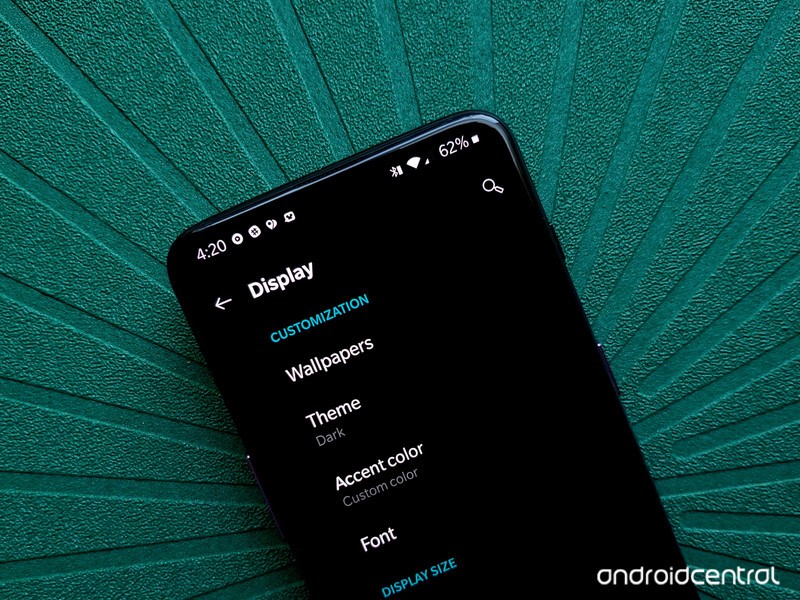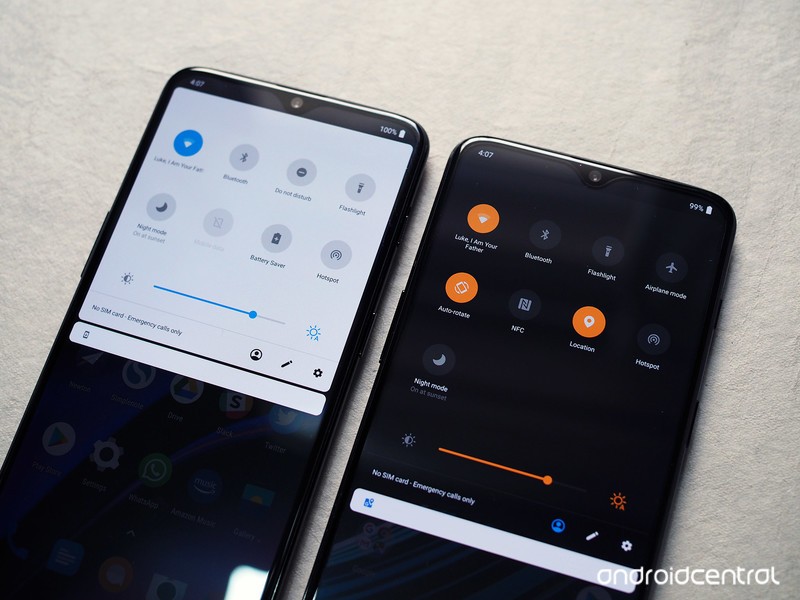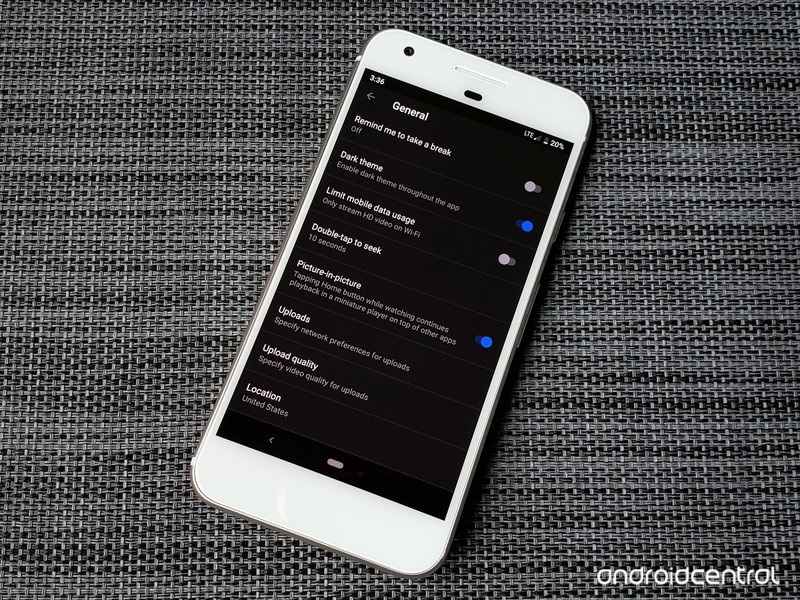Material that the modern user Android – devices need something more than just a black theme of interface design …

Original material by Ara Wagoner
Again, rumors began to circulate, as it happens a few months before the release of a new version Android or a version for developers. 'Maybe this year Android N will finally return the dark theme. Android O will have a dark design! Well, Android P should definitely have this option enabled! '. New Year – old songs. Finally, FINALLY Android Q will be a version that brings back the great dark theme that has been on the system for so long.
Only we got our dark design back many years ago. What we need now is beyond just the color scheme option and beyond Android.

Moving to the ecosystem Android in early 2012, I was fascinated by the deep dark charcoal tones and soft blue accents of the system. Undoubtedly Android was still far from perfect in those days, but getting out of the Holo color scheme was extremely difficult. It was a pity to tears when the design of the Google Play Music interface changed from dark coal to white and orange, and since then (for five years now) the request to return the dark theme has been heard every time I communicate with Google Play support.
These 'blinding' white interfaces make Android unbearable to use at night, especially when eye strain becomes evident closer to sunset. But by the time of the Oreo release, when the system dark theme disappeared into the air again, an inspiration came to me: there is a dark design on more Android – smartphones that are as good as ever.


The OnePlus 6T's color scheme, with three theme options and accents from a hex color palette, is close to perfect, and I really want Google to adopt this system. But this will only solve half the problem. You can already use the dark theme, but it only works on a few apps and not all system notifications.
What we need is a full-fledged design that will apply to all applications and services, that is, not a system theme, but an ecosystem theme, and this is what Google has been trying to cope with for the past five years. We could see an increase in the number of dark themes in third-party applications and services of Google: for example, last year the dark theme finally received Android – a YouTube client. We've witnessed Google's recognition that dark themes are 'battery friendly'. We've even seen teams from various Google services testing different dark styles in terms of form and content.

If we want to achieve the above-described spread of the dark theme beyond Android, then I have two requests for you. First, often ask the developers of your favorite services and applications for the dark theme, if it is still not provided. This is a useful functionality that users with low vision will appreciate, but it takes effort, time and demand from users, so demand darkness!
Second, the next time you see someone's plaintive comment like 'bring the dark theme back to Android', remind the author that we need an ecosystem theme and there are many stages to go through before switching to it. In the meantime, we need patience, perseverance and cookies. The dark side always needs cookies.
Original material by Ara Wagoner
Soon after buying the Samsung Galaxy S4, I realized that the interface was subjectively too bright for me, so after barely waiting for the end of the warranty (ah, prejudices), I immediately installed a third-party firmware on the phone with a minimalistic dark theme. The habit persisted with Note 4, well, everything continued with OP5, since there is no need to flash anything.
The question is in personal preferences and flexibility of system settings, the presence of the latter has always impressed me and often became a determining factor when choosing one or another device for myself or friends / relatives with a sane user experience. It is gratifying to see that many software developers include dark modes in their applications, and I approve and support the trend.
Ecosystem theme? Well, why not, but it's not clear how long it will take for all this. Of course, all manufacturers cannot be persuaded, so it is not a fact that an ecosystem-level solution will not be a faster solution. Or is there no problem and only a small group of enthusiasts are trying to shake things up?
